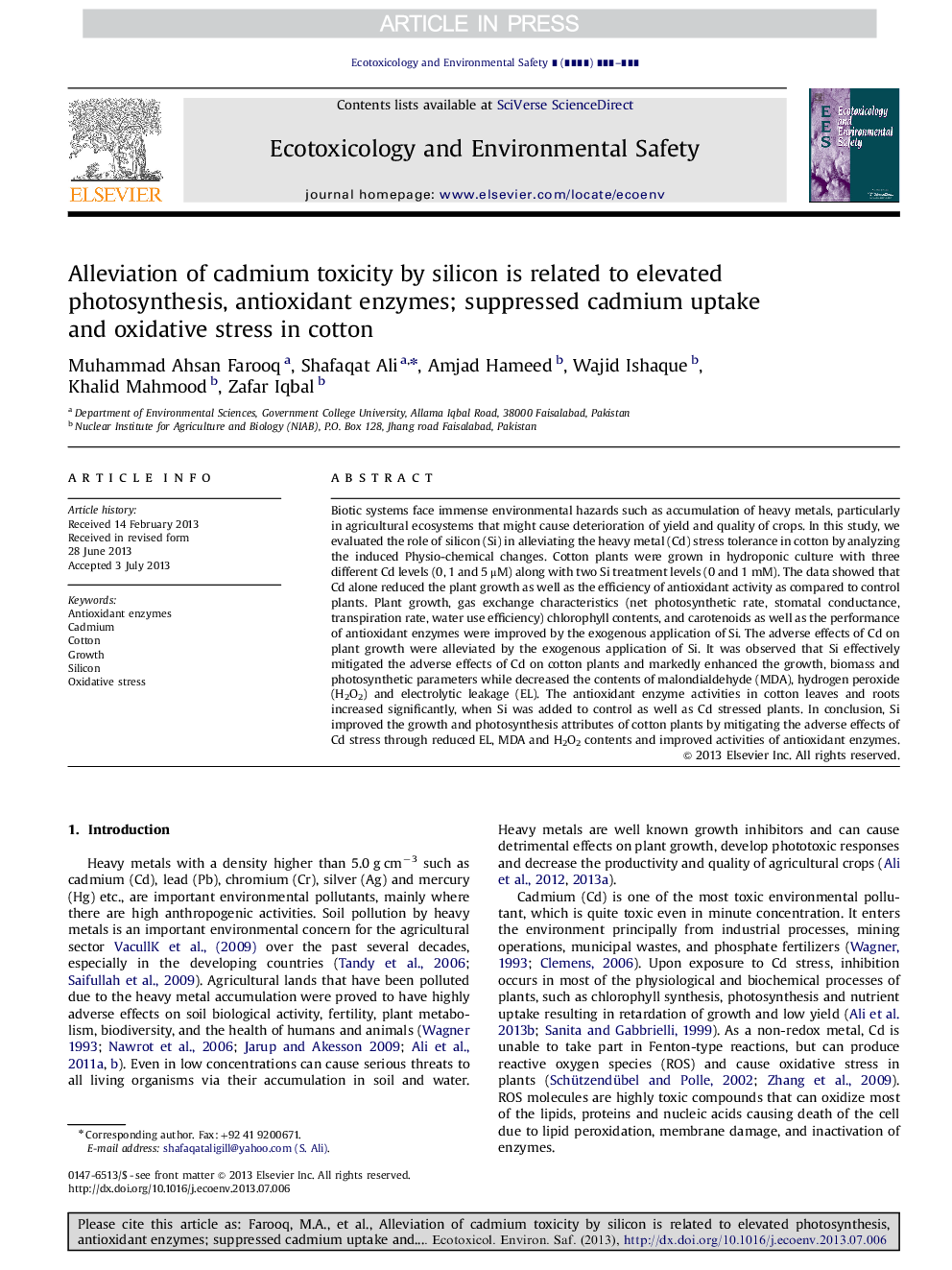| Article ID | Journal | Published Year | Pages | File Type |
|---|---|---|---|---|
| 6312393 | Ecotoxicology and Environmental Safety | 2013 | 8 Pages |
Abstract
Biotic systems face immense environmental hazards such as accumulation of heavy metals, particularly in agricultural ecosystems that might cause deterioration of yield and quality of crops. In this study, we evaluated the role of silicon (Si) in alleviating the heavy metal (Cd) stress tolerance in cotton by analyzing the induced Physio-chemical changes. Cotton plants were grown in hydroponic culture with three different Cd levels (0, 1 and 5 μM) along with two Si treatment levels (0 and 1 mM). The data showed that Cd alone reduced the plant growth as well as the efficiency of antioxidant activity as compared to control plants. Plant growth, gas exchange characteristics (net photosynthetic rate, stomatal conductance, transpiration rate, water use efficiency) chlorophyll contents, and carotenoids as well as the performance of antioxidant enzymes were improved by the exogenous application of Si. The adverse effects of Cd on plant growth were alleviated by the exogenous application of Si. It was observed that Si effectively mitigated the adverse effects of Cd on cotton plants and markedly enhanced the growth, biomass and photosynthetic parameters while decreased the contents of malondialdehyde (MDA), hydrogen peroxide (H2O2) and electrolytic leakage (EL). The antioxidant enzyme activities in cotton leaves and roots increased significantly, when Si was added to control as well as Cd stressed plants. In conclusion, Si improved the growth and photosynthesis attributes of cotton plants by mitigating the adverse effects of Cd stress through reduced EL, MDA and H2O2 contents and improved activities of antioxidant enzymes.
Related Topics
Life Sciences
Environmental Science
Environmental Chemistry
Authors
Muhammad Ahsan Farooq, Shafaqat Ali, Amjad Hameed, Wajid Ishaque, Khalid Mahmood, Zafar Iqbal,
